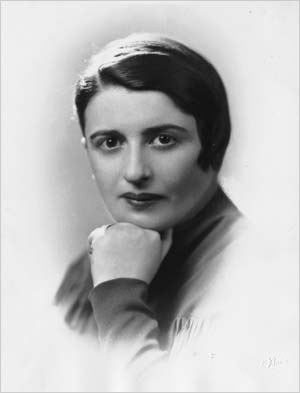ATLAS SHRUGGED PART III:
WHO IS JOHN GALT?
Galt Complex...
I am someone who has bucked the trend of trashing the film adaptations of Ayn Rand's massive tome, Atlas Shrugged. I confess to being intrigued by some of her thinking, and also convince that I tried to read the book many years ago and pretty much gave up. Having enjoyed both Atlas Shrugged and Atlas Shrugged Part II: The Strike, I went into Part III: Who is John Galt? intrigued by the prospect of wrapping this series up.
What I found was pretty much a mess of a movie, where even the people in front and behind the camera appeared desperate to just get it all over with.
Using a series of performances and voice-over narration with stills, we first get the story of how John Galt (Kristoffer Polaha), the creator of a powerful machine that could power the world with little material, refuses to go along with his fellow plant workers in forgoing salaries to share the profits equally between those who work hard and those who hardly work at all. From there, we jump back into where we left off in Episode 2, where Dagny Taggart (Laura Regan, taking the role from Samantha Mathis, who took the role from Taylor Schilling), having crashed into a utopia of wealthy individualists, is asked to stay by Galt and those who think like him. Among those in this Libertarian Paradise is her old lover, Francisco d'Anconia (Joaquim de Almeida, taking over from Esai Morales, who took over from Jsu Garcia). They all are on strike against those who take more and more from them but who in turn give them nothing but abuse.
Dagny, however, feels someone has to fight against the growing tyranny taking the country into an abyss. She opts to leave, and return to the Taggart Train Company, where her venal brother James (Greg Germann, taking over from Patrick Fabian, who was taking over from Matthew Marsden) is in cahoots with the government that wants to starve the population, sacrifice Minnesota and its citizens for the 'betterment of the country', and basically destroy America. Dagny is determined to literally keep the trains running. With the government about to make its final assault, John Galt takes over our screens to make his famous speech, which in a nutshell can be capsulized by his mantra
I swear by my life, and my love of it, that I will never live for the sake of another man, nor ask another man to live for mine.
Galt is finally captured and tortured, but Who is John Galt? ends with his dramatic rescue, with Dagny (who by now has become his lover) and other counter-revolutionaries, including her former lover Hank Rearden (Rob Morrow, taking over Jason Beghe, taking over Grant Bowler) sweeping in and spiriting him away to the safety of that blissful world where selfishness is a virtue.
For myself, I was simply astonished at how rushed, chaotic, and even laughable Who is John Galt? was. As I watched, I could not help think that director James Manera, the third in this trilogy, was either in a hurry to get this into theaters or just didn't know what to do in trying to compress such a massive novel into a concluding chapter.
As a side note, I've always felt Atlas Shrugged would have worked better as a television miniseries, where the story could flow more smoothly and more importantly, we would have the same cast rather than have so many changes that it soon becomes impossible to try and think who is playing what character.
I don't really blame the actors in WIJG?, because they were given the thankless task of trying to create characters already interpreted by two other actors and jumping in at the tail end of the story, allowing for no real flow. Figuring best (or worst, given on one's interpretation) is Morrow, who was in a 'blink and you miss it' performance. I'm pretty sure he didn't appear until the final fifteen minutes of WIJG?, perhaps terrified that as one of the few legitimate names in the film, any association with this flop (artistic and political) would permanently ruin him. He and the character of Rearden didn't play any part in the film.
As for the other actors, my goodness some of them were beyond awful. Germann, whom I never liked in a show I never liked (Ally McBeal), behaved as though he wasn't aware what acting involved. I suppressed laughter when in what is suppose to be a tense dramatic scene and he no longer wants to be part of the nefarious machinations of the wicked government torturing the noble Galt, he came across as a whiny child.
As the lead, Polaha did what he could to make him a compelling character, but sometimes he came across as a generic hunk with little charisma to promote this great revolution of the mind. Regan similarly tried her best but her Dagny was not the most compelling figure either.
I blame the direction and the lousy screenplay (adapted by Manera and Harmon Kaslow and the trilogy's producer John Aglialoro, who curiously adapted the first but not second part of the trilogy). You give people pretty silly situations to try to bring to life and they could give it their all and still come off as terrible. However, everyone involved has to be mocked for a howler of a love scene that is less romantic than it is downright comic. As the trains are slowly coming back to life, with the nation on the bring of collapse, Dagny and John find a quiet area in a tunnel to consummate their buried passions. Part Harlequin Romance cover, part spoof, the scene not only appears to come out of nowhere but appears so ill-timed. At a time of great crisis, should people so involved in rescuing the nation be engaged in passionate lovemaking?
Among the biggest bad decisions was to try to sum up so much with voice-over and still pictures. To me, that signals they either ran out of money, time, or interest. Regardless of why it was done, it all came across as shockingly inept and uncoordinated, as if there was no director.
What really must gall Galt fans must be the butchering of Galt's famous "A Stands for A" speech, a blistering and massive manifesto outlining Rand's thinking. I don't even remember hearing 'A stands for A' (meaning that there is no supernatural force but that things are as they appear as I understand it). No interpretation could really do justice to an entire chapter's speech, and the end results don't appear to try to move you to support Objectivism.
It's almost as it is trying to get you to vote Socialist.
One almost feel for Aglialoro, who had to rush the films into production because his film rights were about to expire. Again, because we've had so many cast changes, three directors (or at least people with that title) and various adapters tackling the epic novel, the sum of the whole just collapses on itself. If he had just tried harder for a television adaptation, or just let the rights go...
Even if people agreed with Rand's theology or parts of it, like former Representative Ron Paul, Glenn Beck, and Sean Hannity (who all make cameos as themselves, and for the record, Beck looks like Leon Trotsky), Atlas Shrugged Part III: Who is John Galt? is a film that they would say is a shambles.
Again, I cannot make great claims to know what the self-described 'radical for Capitalism' would think about the film adaptations of her magnum opus. If I were to venture a guess, I think Ayn Rand would accuse it of being the work of the Forty-Fifth President, Madame Hillary Rodham Clinton, as a way of discrediting Rand's thinking and make it all look so foolish, even downright insane.
 |
| 1905-1982 |
DECISION: F


No comments:
Post a Comment
Views are always welcome, but I would ask that no vulgarity be used. Any posts that contain foul language or are bigoted in any way will not be posted.
Thank you.